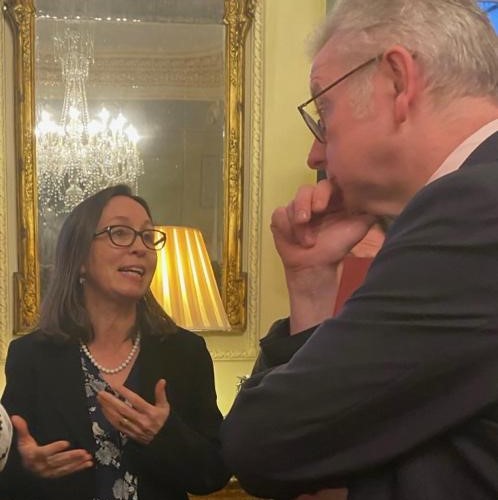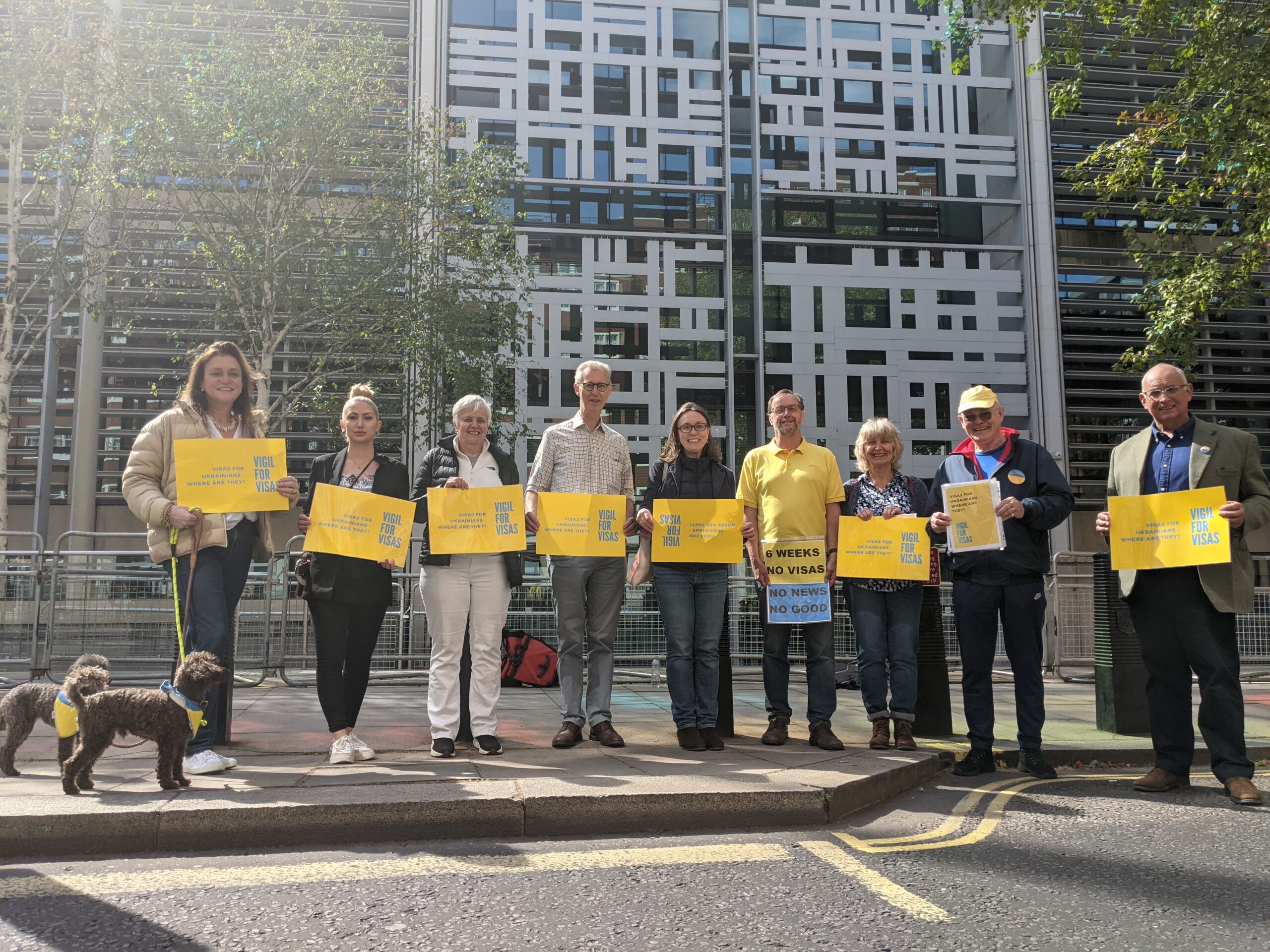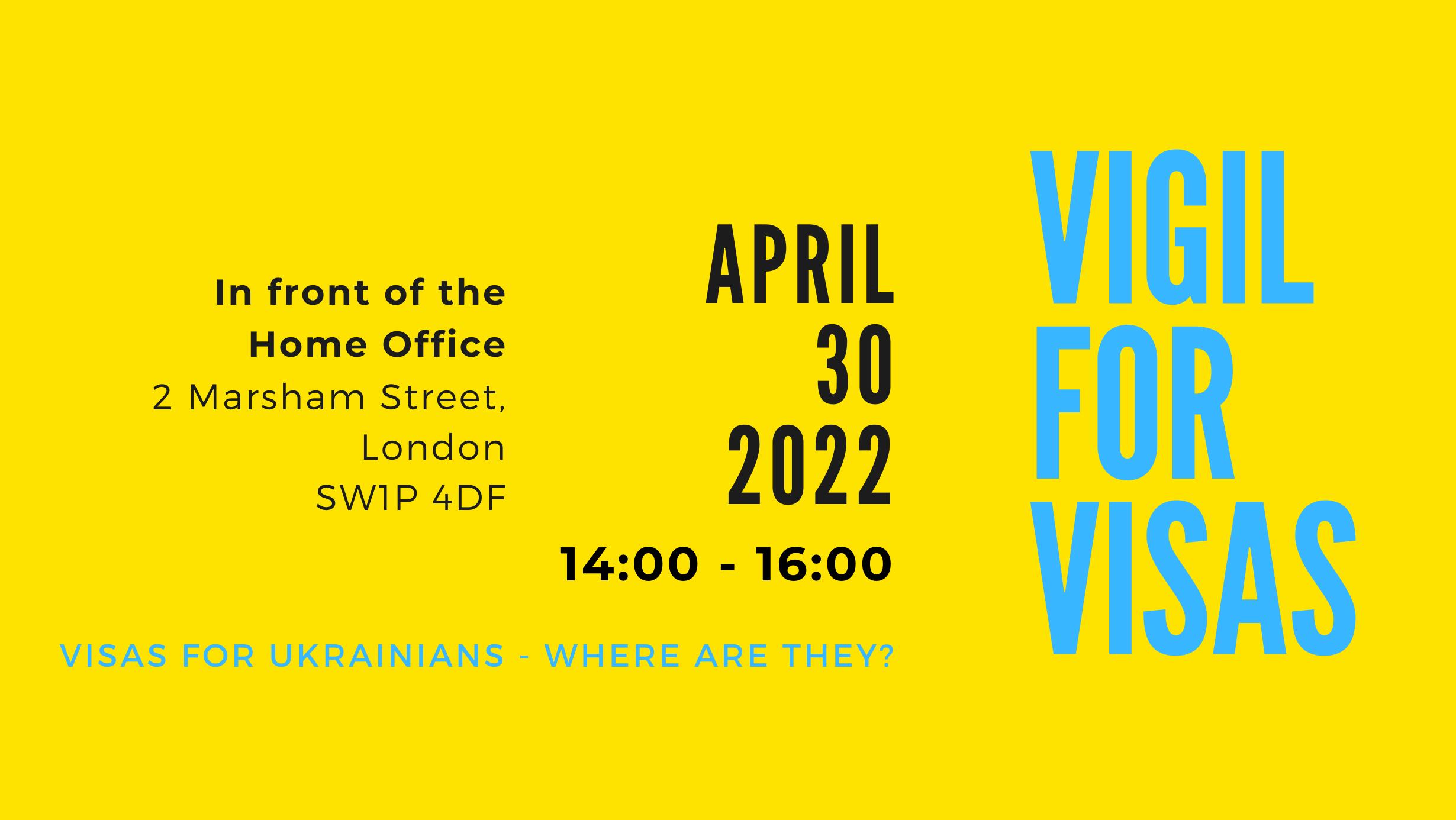We’ve proved our resilience and resourcefulness. We now need stamina, and we can’t do it alone.
In one month’s time it will be exactly one year since we found ourselves on the eve of an invasion that would impact us all in some way. While Vigil for Visas has been silent recently, as hosts, we have continued to do what we can to ensure our guests remain welcome and safe. Increasingly there are stories of families at risk of homelessness, but for most, UK families have continued to shelter those in need.
Last week some of us were invited to an event at 10 Downing Street to mark Orthodox New Year. We went as a UKrainian family to mingle with others in similar situations, eat delicious Ukrainian canapes and listen to Ukrainian children sing traditional songs.
Of course, there were several MPs and others involved in the scheme and Michael Gove gave a few words of thanks for those who opened their homes to strangers in their “hour of need”.
But it’s not job done. Far from it. We have a long list of issues to address:
- Rebalancing of the Family and Homes for Ukraine scheme so there isn’t a two-tier system (not to mention the no tier system for other refugees).
- Acceptance and low-cost conversion of qualifications
- Better and more consistent English Language learning provision
- Car licenses
- School support
- Trauma support
The list is long, but the most important of all is housing. The six months’ time frame has expired for many of us, and a significant majority have decided to continue for the duration or until an alternative solution is found.
We’ve built strong bonds to our guests and feel a deep sense of responsibility for their safety and welfare; but for a whole range of reasons, not all of us can continue and not only due to “relationship breakdowns” that have dominated the news.
The government says it has acknowledged the issue and given more money to local authorities to deal with it, but with little housing stock it is not just a question of throwing money at it, but looking for workable solutions that are sensitive to the wider needs of all our communities.
First thing to remember is that on the 23rd February last year, the Ukrainian refugees who have made it to these shores had no idea that they would be doing so. They had no plans to live in the UK, but they do have plans to go home when they can. In fact, many are desperate to do so.
We’ve asked Michael Gove for a campaign to encourage new hosts to come forward either for rematching or to welcome more refugees as the war intensifies. The BRPs have been issued for a period of three years and so the government needs to work with Local Authorities, host and guest communities, charities, private landlords and others to come up with a plan that reflects a more realistic time frame. Six months always seemed a little optimistic. In many cases, hosts are working with their Local Authorities to support them in the nitty gritty of individual cases, as well as trying to put in place a template rehoming/rematching structure. As hosts we are linking up to share best practice from our own areas. We want and are hoping to share this with government.
What was always so striking about the H4U scheme was the outpouring of goodwill for this project. This was matched by the perseverance, resilience and resourcefulness we have proved in getting this scheme off the ground and now we need government support to give us the stamina to keep it going.
Our guest had the opportunity to thank Michael Gove for the tanks. She has two sons and a husband still in Ukraine, one of her sons is now an army medic and so this matters on a very personal level.
This is a battle we’re fighting on two fronts. They need the tanks, but Ukrainians also need a secure refuge for the duration of the war so that they can return unbroken to rebuild a country they desperately want to return to as soon as possible.


